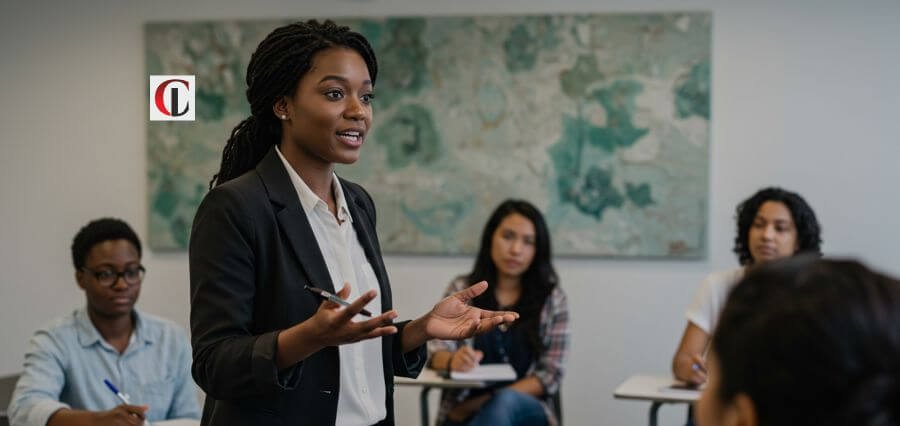In an era of technology advances and changing world priorities, education leaders are emerging in fresh forms to equip students for a progressively complicated global era. Pedagogy of yore, as cubical in formulation as it was, leaves students bluntly ill-equipped with the analytical thinking, adaptability, and creativeness required in the 21st century. With the help of technology, eliciting teamwork, and reorganizing learning environments, these leaders are transforming the very essence of education. Not only do their methods enable more effective working of education, but also elicit more integrated development, converting students into life-long learners who are able to become active contributors in resolving problems in the world. Besides class teaching planning, such leaders are interested in incorporating increased interdisciplinary learning that balances intellectual knowledge with practical application. They are committed to creating learning environments where students will be challenged to solve increasingly difficult problems, evolve innovative solutions, and gain skills beyond traditional examinations. These actions ensure that learning extends beyond classroom and books but becomes a process of experience building, promoting responsibility, resilience, and curiosity. By creating conditions for such traits, effective education leaders are establishing a next generation of learners who are not only skilled but also compassionate.
Technology-Driven Learning
The greatest value added by innovative teachers is in the application of technology as a thoughtful instrument of knowledge acquisition. Computer software, virtual classrooms, and artificial intelligence are used to provide education on a one-to-one basis so that each child is educated according to his or her interest and aptitude. These innovators embrace the reality of the fact that technology cannot replace the touch of humans but it is an enabling factor that makes learning easier. With adaptive learning technology and evidence-based practice, teachers are able to analyze areas of struggle for students and intervene early, resulting in higher levels of understanding and extended participation time.
Technology also facilitates easier global partnerships since it allows students to interact with other students, guides, and experts beyond their immediate environment. Innovative teachers are using virtual classrooms, web-based projects, and interactive models to facilitate better geographical bridging and cross-cultural acquisition. Exposure widens minds, develops empathy, and fosters the communication skills needed in the globalized economy of today. School leaders are preparing students for accomplishment in a technology age when digital literacy, creative problem-solving ability, and imaginative thinking are the minimum requirements by leveraging the power of technology through focused use.
Advancing Experiential Learning
Another feature of school leadership is giving very high importance to project-based learning and experiential learning. Innovative leadership believes that students learn most effectively when they attempt to learn actively in real-world settings. Contemporary schools and institutions of higher learning design curriculum with emphasis on experiential learning, team work, and civic engagement. These methods enable students to study ideas in detail, gain functional competency, and apply leadership skills in actual settings. By moving away from exclusive theoretical teaching, instructors leave space for students to interact meaningfully with subject matter and claim ownership of what they are learning.
Project-based learning also creates resilience and innovation, where students can experiment with potential solutions, fail, and learn from failure within a secure setting. New instructional leaders create space for critical thinking and experimentation to be purposefully cultivated. Inserting such practices into conventional curricula, institutions both maximize student success and prepare students to approach indeterminate, messy dilemmas with ease. Such experiential approaches keep education fresh, relevant, and responsive to the nuances of modern society.
Inclusive Learning Communities
Equally essential in the toolkit of progressive education leaders is the ability to build whole and inclusive learning communities. These leaders know that student achievement depends upon the emotional, social, and cultural as well as academic conditions. They open up the possibilities of equity, diversity, and inclusion so that all students have access to reach their potential through relevant opportunities, resources, and systems of support. Mental wellness, mentoring, and social-emotional learning programs fall under resilience, cooperation, and forming a sense of belonging. Herein, students are enabled to speak up with ideas, to build skills, and to be active learners.
In the same manner, holistic practice is also evidenced by collaborative work with families, community, and industry. Educated leaders positively weave networks of life-long learning facilitation and connect classroom learning to wider professional and social contexts. Through integrating many perspectives and promoting collaborative problem-solving, such instructors provide their students with a most integrated picture of their world. Through creating inclusive, holistic communities of learners on purpose, forward-thinking leaders are redefining success in learning and constructing the next generation of engaged, capable, and socially responsive citizens.
Conclusion
Visionary education leaders’ vision is transforming learning today. Through the use of technology, the focus on experience-based learning, and the building of collaborative communities, these teachers are preparing students academically to perform in the classroom, in society, and in the workplace. It is a reminder that learning is an adaptable, dynamic process, a process that must shift second by second in order to meet the demands of an interdependent, evolving world. As more and more leaders embrace these newer approaches, the education days shall be more participative, productive, and interactive than ever.

